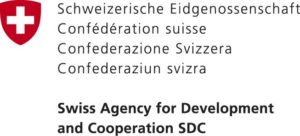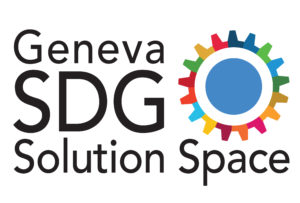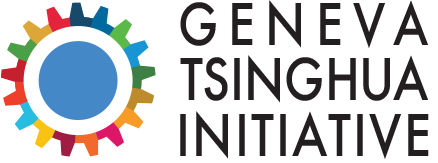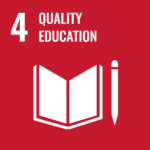Ageing and Disabilities (Online)
The Ageing and Disabilities Innovation Bootcamp will follow the Disabilities one in October, shifting the focus to the Asia-Pacific region, where these two global issues affect the populations the most, in a direct way. The Ageing and Disabilities Innovation Bootcamp will deliver education on challenges and methodologies for innovations associated with the elderly and disabled populations.
Hands-on practice will be delivered as part of the SDG Open Hack!, taking place on 28-29 November 2020.
Registrations are closed.
A Unique Partnership
Program Partners


Acceleration Partners



Collaborative Partners


Academic Partners
Related SDGs and Targets
1.1By 2030, eradicate extreme poverty for all people everywhere, currently measured as people living on less than $1.25 a day.
1.2 By 2030, reduce at least by half the proportion of men, women and children of all ages living in poverty in all its dimensions according to national definitions.
1.3 Implement nationally appropriate social protection systems and measures for all, including floors, and by 2030 achieve substantial coverage of the poor and the vulnerable.
2.2 By 2030, end all forms of malnutrition, including achieving, by 2025, the internationally agreed targets on stunting and wasting in children under 5 years of age, and address the nutritional needs of adolescent girls, pregnant and lactating women and older persons.
3.3 By 2030, end the epidemics of AIDS, tuberculosis, malaria and neglected tropical diseases and combat hepatitis, water-borne diseases and other communicable diseases.
3.4 By 2030, reduce by one third premature mortality from non-communicable diseases through prevention and treatment and promote mental health and well- being.
3.8 Achieve universal health coverage, including financial risk protection, access to quality essential health-care services and access to safe, effective, quality and affordable essential medicines and vaccines for all.
3c. Substantially increase health financing and the recruitment, development, training and retention of the health workforce in developing countries, especially in least developed countries and small island developing States.
4.3 By 2030, ensure equal access for all women and men to affordable and quality technical, vocational and tertiary education, including university.
4.4 By 2030, substantially increase the number of youth and adults who have relevant skills, including technical and vocational skills, for employment, decent jobs and entrepreneurship.
4.6 By 2030, ensure that all youth and a substantial proportion of adults, both men and women, achieve literacy and numeracy.
4.5 By 2030, eliminate gender disparities in education and ensure equal access to all levels of education and vocational training for the vulnerable, including persons with disabilities, indigenous peoples and children in vulnerable situations.
5.4 Recognize and value unpaid care and domestic work through the provision of public services, infrastructure and social protection policies and the promotion of shared responsibility within the household and the family as nationally appropriate.
5.5 Ensure women’s full and effective participation and equal opportunities for leadership at all levels of decision-making in political, economic and public life.
8.5 By 2030, achieve full and productive employment and decent work for all women and men, including for young people and persons with disabilities, and equal pay for work of equal value.
8.8 Protect labour rights and promote safe and secure working environments for all workers, including migrant workers, in particular women migrants, and those in precarious employment.
10.2 By 2030, empower and promote the social, economic and political inclusion of all, irrespective of age, sex, disability, race, ethnicity, origin, religion or economic or other status
10.8 Ensure equal opportunity and reduce inequalities of outcome, including by eliminating discriminatory laws, policies and practices and promoting appropriate legislation, policies and action in this regard.
11.2 By 2030, provide access to safe, affordable, accessible and sustainable transport systems for all, improving road safety, notably by expanding public transport, with special attention to the needs of those in vulnerable situations, women, children, persons with disabilities and older persons
11.7 By 2030, provide universal access to safe, inclusive and accessible, green and public spaces, in particular for women and children, older persons and persons with disabilities
Bootcamp Overview

Practical Information & Registration
Practical Information
- Bootcamp : 23th – 25th November 2020 (online)
- SDG Open Hack! : 28th – 29th November 2020 (hybrid)
Registration
Deadline : mid November (exact dates to be announced soon)
Certificate & Awards
Certificate
Upon completion, including participation to Sustainable Finance Hackathon, participants to the Sustainable Finance Innovation Bootcamp will receive a training certificate, jointly awarded by the:
- United Nations Institute for Training and Research (UNITAR)
- University of Geneva (UNIGE)
- Tsinghua University
Awards :
Awards and other opportunities will be granted to participants (respectively teams) who showed outstanding commitment and performance. Advantages may include:
- Special money grants
- Travel grants
- Coaching and acceleration
- One-on-one interactions with top UN / NGO executives.
Speakers
Opening Remarks

Pearl Donghui Mao is currently the Director of Tsinghua x-lab at the School of Economics and Management (SEM), Tsinghua University. The x-lab provides innovation and entrepreneurship-related services and resources for students, alumni, and teachers from all departments of Tsinghua, aiming to cultivate and improve the innovative and entrepreneurial quality and ability of the students and promote integration and cooperation among cross-disciplinary teams in various ways.
Prior to this position, she served the School as Executive Director of MBA Programs and Director of Tsinghua—MIT International MBA Program from 2006 to 2012, and Director of Career Development Center from 2003 to 2006.
Before joining Tsinghua SEM, Pearl had 10-years of professional experience in business development, operations management, and international investment with Continental Grain Company and Koch Industries Inc. both in China and the United States. Her latest position with corporate was Vice President of a China high-tech corporation focusing on IT education business and software products.
She received her International MBA degree from Thunderbird, School of Global Management in Phoenix, AZ, USA in 1997, and a BS in Biology in1987 from Wuhan University, China.

Dr. Renaud Vuignier is a public entrepreneur driven by a passion for innovation and impact. He currently works as Deputy Head of International Cooperation at the Embassy of Switzerland in China for the Swiss agency for Development and Cooperation (SDC). His previous experiences include working as a policy consultant at UNDP, as a senior analyst for Conexkt.world and as a scientific collaborator at the Swiss State Secretariat for Economic Affairs SECO. He obtained a PhD in public administration from the University of Lausanne, Switzerland, where his research focused on innovation policy and economic development.
Introduction to Inclusive Innovation for Ageing and Disabilities

Marta Perez Cuso, Economic Affairs Officer, UN ESCAP
Marta Perez Cuso supports governments across the Asia-Pacific region to adopt technology and innovation policies that enable economic growth and, more importantly, greater social outcomes and environmental sustainability.
Academic Perspectives to Ageing and Disabilities
Prof. Dimitri KONSTANTAS
Full Professor
Information Science Institute
Dimitri Konstantas is Professor at the Geneva School of Economics and Management (GSEM) of the University of Geneva (CH) and director of the Information Science Institute (ISI) and member of the Information Service Science Institute of the University Center of Computer Science (CUI), having served for 7 years as Vice-Dean at the Faculty of Social and Economic Sciences of the University of Geneva (CH). Prof. Konstantas, is active since 1987, in research in the areas of Object Oriented systems, e-commerce services, Information Security, mobile services, e- and m-health services of elderly, and recently in shared mobility solutions. He has more than 150 publications in international conferences, journals, books and book chapters, a long participation and leadership in numerous European projects, many nominations as consultant and scientific expert for several international companies and governments, and has has launched three start-ups and acted as coach to numerous University start-ups. Since May 2018, Prof, Konstantas is coordinating the H2020 European project AVENUE, which targets in the validation of autonomous vehicles for public transportation.
SDGs & Innovation

Bob Bell, UNCTAD
Bob Bell is an Economic Affairs Officer in the Science, Technology, and Innovation Policy Section of UNCTAD. In this capacity, he conducts research and analysis for UNCTAD’s flagship Technology and Innovation Report and provides substantive servicing of the United Nations Commission on Science and Technology for Development (CSTD). He has significant experience on science, technology, and innovation issues in academia and in international development consulting. He previously served as an Adjunct Professor within the Science, Technology, and International Affairs Program of Georgetown University’s School of Foreign Service where he taught the following courses: STIA-368 “Innovation, Development, and Complexity” and STIA-442 “Big Data and its Politics.” Before Georgetown, he graduated with a Ph.D. from UC Berkeley’s School of Information in May 2015, where his dissertation research addressed the prospects and challenges of the information society for providing ICT-enabled employment opportunities in Kenya and South Africa. He has participated in consulting projects to develop draft national ICT policies and advise on universal service and broadband strategies. He has also served as a research associate at Harvard’s Belfer Center for Science and International Affairs and at the Nairobi-based African Centre for Technology Studies. He has an undergraduate electrical engineering degree from Stanford University.
Ageing and Disabilities SDG Open Hack! – Methodology workshops

Steven White
Dept of Innovation, Entrepreneurship & Strategy, School of Economics & Management, Tsinghua University
Dr. Steven White’s research and teaching focuses on issues related to creative problem-solving, innovation and entrepreneurship. He was the founding Associate Academic Director of Tsinghua University’s x-lab, a resource platform and ecosystem hub that brings together students, alumni, faculty and executives to support teams as they develop new ventures. His current research projects investigate the role of entrepreneurship in the emergence of new industry ecosystems, the evolution of China’s VC industry, and the management of cooperation in alliances. He is also an angel investor and provides strategic advice to new ventures.
Case Sharing & Roundtable “Ageing and Disabilities in the next 20 years”
Founder and CEO, Global Citizen capital
Collective Action is the way forward for the United Nations and the 17 Sustainable Development Goals to be realized. As Founder and CEO of Global Citizen Capital, Better Together Foundation and KIDsforSDGs, Kenneth seeks to empower the next generation of leaders towards achieving collective action through a hybrid for-profit and non-profit circular model. Furthermore, Kenneth is personally vested in advancing diversity, inclusion and social justice, and this is evident in his work across community building, impact investment and holistic mentorship.

Bin Chen, CEO of Voice of Hand Information Technology Ltd (VoH)
Dr Bin Chen (CEO), graduated from Beijing University of Aeronautics and Astronautics in Electrical Engineering and Automation in 2003. In 2004, he went to the UK to pursue Postgraduate study, and obtained Masters’ degree and Ph.D. degree in Swansea University. In 2008, Dr Bin Chen founded a technology start-up company AwenID in the UK, and successfully developed a tracking and management system that integrates biometrics, RFID and mobile internet technologies. In 2012, the company established a joint venture TrakCel with a leading pharmaceutical clinical trial service provider in the UK, and successfully developed the world’s first supply chain management system specially designed for gene and cell therapies to provide full visible and controllable management solution. TrakCel was acquired by a US investment company in 2016 to develop the global market. In 2014, he successfully obtained a Master’s degree in Business Administration (EMBA) from University of Cambridge, and became a senior lecturer in the School of management of Swansea University (resigned in February 2019).
In 2015, he joined VoH and devoted himself to serving the Deaf community in China, by seeing the desperate needs and great potentials.













